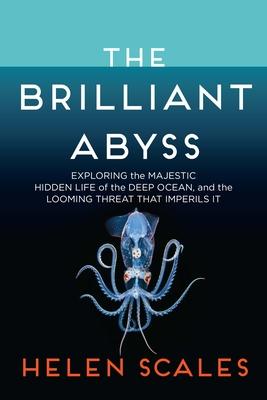A marine biologist vividly brings alive the extraordinary ecosystem of the deep ocean--a realm about which we know less than we do about the Moon--and shows how protecting rather than exploiting it will benefit mankind.
"The oceans have always shaped human lives," writes marine biologist Helen Scales in her vibrant new book The Brilliant Abyss, but the surface and the very edges have so far mattered the most. "However, one way or another, the future ocean is the deep ocean."
A golden era of deep-sea discovery is underway. Revolutionary studies in the deep are rewriting the very notion of life on Earth and the rules of what is possible. In the process, the abyss is being revealed as perhaps the most amazing part of our planet, with a topography even more varied and extreme than its Earthbound counterpart. Teeming with unsuspected life, an extraordinary interconnected ecosystem deep below the waves has a huge effect on our daily lives, influencing climate and weather systems, with the potential for much more--good or bad depending on how it is exploited. Currently the fantastic creatures that live in the deep--many of them incandescent in a world without light--and its formations capture and trap vast quantities of carbon that would otherwise poison our atmosphere; and novel bacteria as yet undiscovered hold the promise of potent new medicines. Yet the deep also holds huge mineral riches lusted after by many nations and corporations; mining them could ultimately devastate the planet, compounded by the deepening impacts of ubiquitous pollutants and rampant overfishing.
Eloquently and passionately, Helen Scales brings to life the majesty and mystery of an alien realm that nonetheless sustains us, while urgently making clear the price we could pay if it is further disrupted. The Brilliant Abyss is at once a revelation and a clarion call to preserve this vast unseen world.
